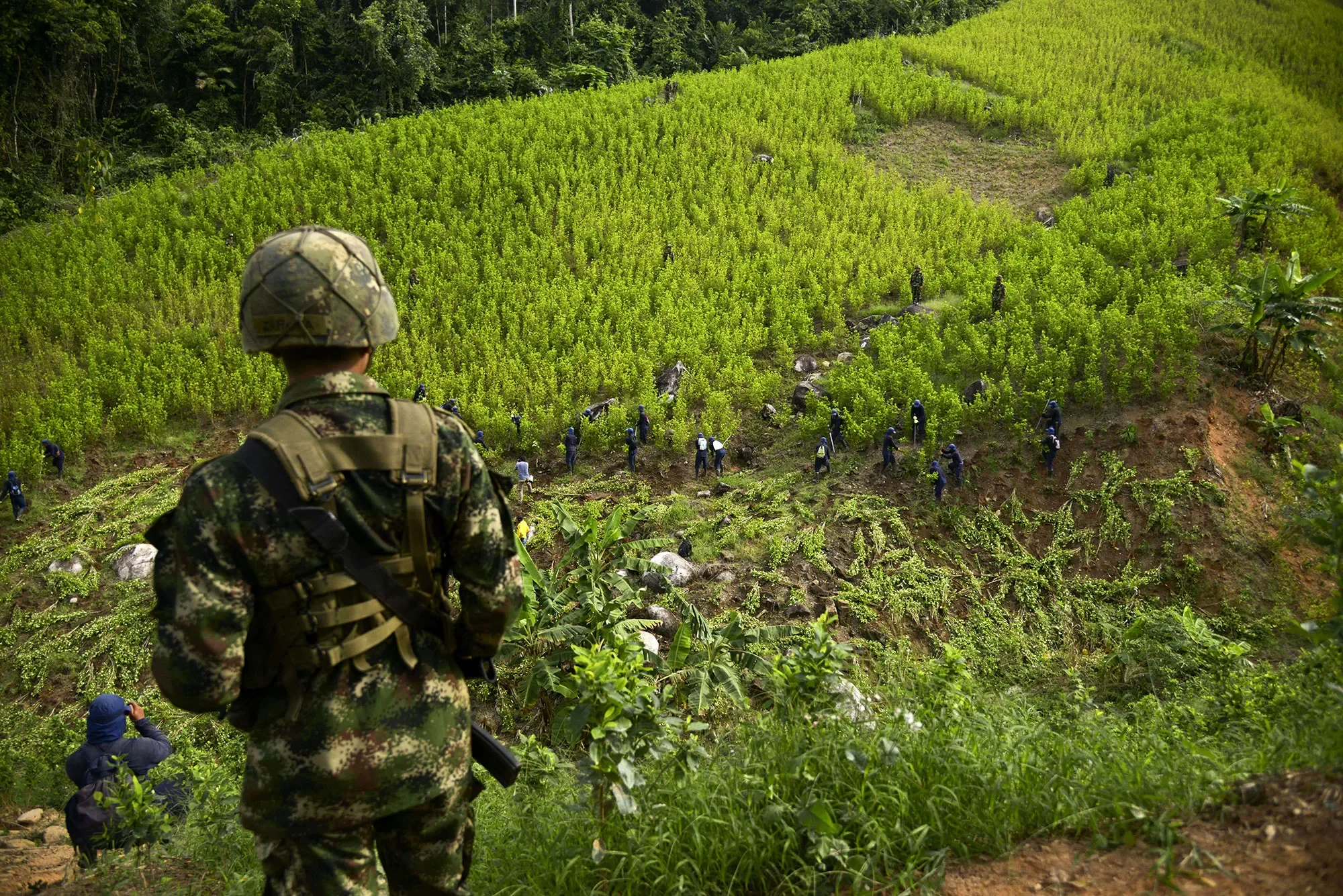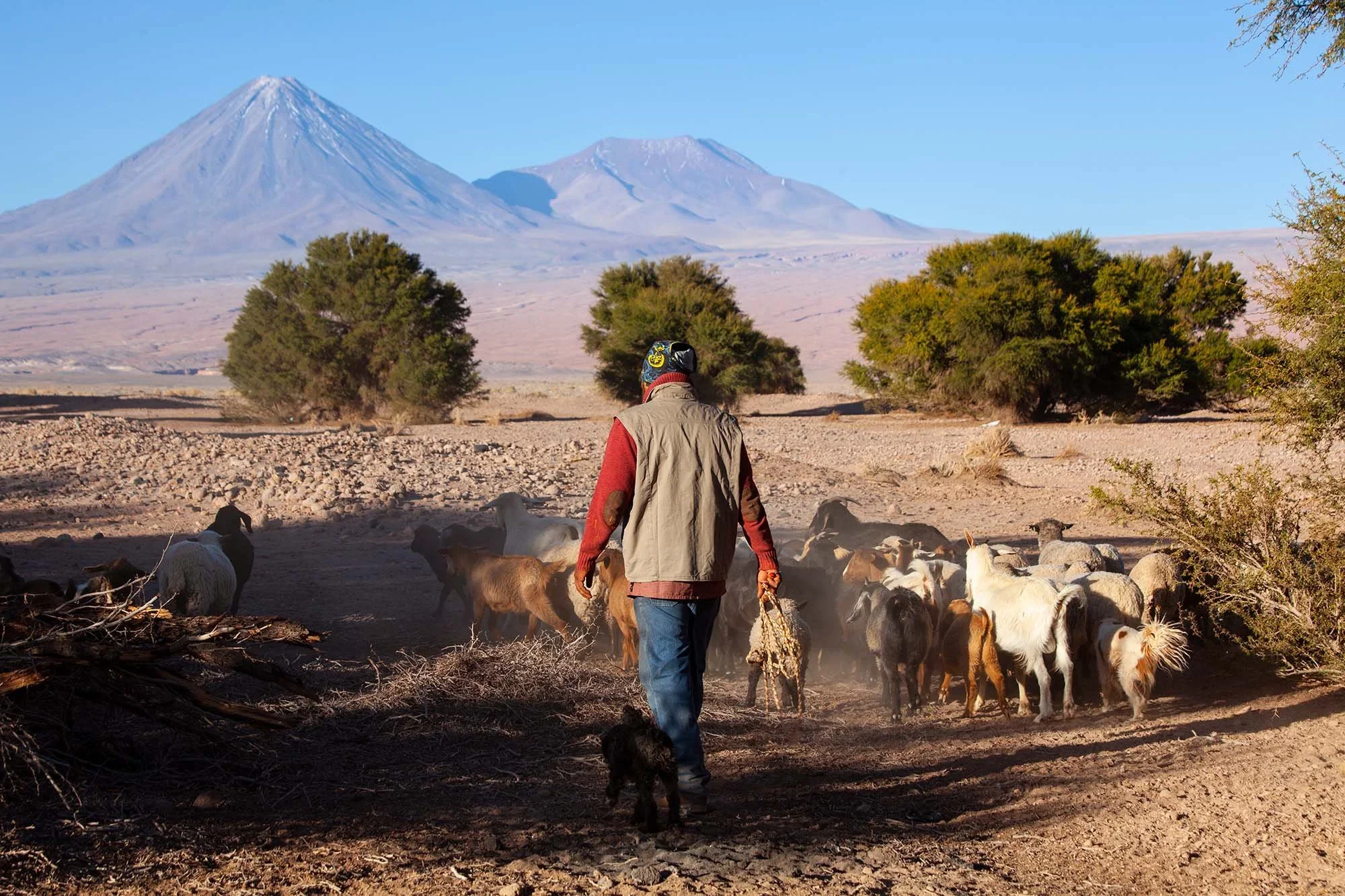Notebook News - September 2025
COLOMBIA’S DISPUTED ROLE IN THE U.S. WAR ON DRUGS
The United States has formally decertified Colombia as a partner in its war on drugs, a long-anticipated move that signals disapproval of President Gustavo Petro’s approach. Despite the decertification, Washington will continue funding Colombia’s military and counter-narcotics programs. Petro, Colombia’s first leftist president, has clashed repeatedly with U.S. drug policy, favoring crop substitution, rural development, and negotiation with armed groups over traditional eradication programs.
Coca crops have reached record highs of ~253,000 hectares coverage in Colombia since 2021.
The U.S. government stated that Colombia has “demonstrably failed” to curb drug trafficking, although a waiver will allow aid to continue. Still, the move is a symbolic rebuke of Petro’s policies and a warning that further divergence could threaten U.S. support.
Colombia remains the world’s largest exporter of cocaine. Since Petro took office in 2022, his administration has shifted away from fumigation of coca crops, a practice that poses severe risks to human health and to biodiversity. Instead, his administration has emphasized drug seizures and alternative development. However, cocaine production has continued to rise. A June report from the UN Office on Drugs and Crime found that Colombia’s cocaine yield increased by 50% from 2022 to 2023.
The Trump administration, in its formal submission to Congress, blamed the worsening crisis on Petro’s “failed attempts to seek accommodations with narco-terrorist groups,” referring to the government’s peace talk with FARC dissidents among other armed groups. Petro has countered by blaming the surge on rising global demand, especially in Europe. According to this logic, the countries responsible for driving demand should take responsibility for suppressing supply.
The collapse of peace talks with FARC dissidents has contributed to increased coca cultivation. At the same time, a 70% reduction in USAID funding to Colombia since 2023—much of it aimed at rural development and humanitarian aid—has likely contributed to growing instability and criminal activity.
Sara Garcia and Parker Asmann, writing for InSight Crime, suggest that the U.S. may be using the threat of reduced aid to pressure Colombia into targeting Venezuelan drug-trafficking networks operating across the border.
Instead of backing down, Petro has escalated his rhetoric. His chief of staff announced that Colombia would stop purchasing U.S. arms, framing the move as a step toward military independence. Speaking at the UN, Petro condemned U.S. airstrikes on alleged drug-running boats in the Caribbean as “an act of tyranny.”
“Why launch a missile if you could simply stop the boat and arrest the crew?” Petro said. “That’s what one would call murder.”
Both Petro and Trump are thin-skinned, volatile populists with loyal domestic followings, but their countries remain strategic allies. Despite political friction, both sides have compelling reasons to maintain cooperation. For example, Colombia recently agreed to U.S. demands to repatriate Colombian migrants after Petro and Trump had sparred over the issue on social media.
Petro’s critique of decades-long eradication policy comes with historical context: coca cultivation and cocaine exports have steadily increased despite ongoing U.S.-backed efforts. Yet Colombia knows that continued partnership with the United States is crucial in the short term if it wants space to implement long-term reforms.
CHILD PROTECTION IN BOLIVIA
Legislators in Bolivia moved last week to protect children from marriage before the age of 18, in a long-awaited decision that campaigners say must be just the first step toward greater protections for children and young people in the country.
A new law, approved in the Chamber of Deputies on September 18, 2025, forbids the marriage of under-18-year-olds in any circumstances, where previously an exception allowed 16–17-year-olds to marry with parental consent.
Bolivia has one of the highest rates of child marriage of boys in the world, at 5%. Meanwhile, over 20% of girls are married or in an informal union before the age of 18, and 3% are in an informal union before the age of 15.
The NGO Girls Not Brides cites poverty as a key driver of child marriage, as girls may flee poverty through a union or seek to spare their family an extra mouth to feed. These problems were exacerbated during the COVID-19 pandemic, when unemployment in Bolivia rose from 22% to 31%. Some statistics suggest that this problem may be more pronounced among Quechua-speaking communities.
Campaigners say that common-law unions and marriages of adolescents are a gateway to sexual violence, human trafficking, and child pregnancy.
The government aims to end child marriage and forced unofficial unions in Bolivia by 2030.
Nevertheless, the newly approved legislation is no panacea: it does not address the practice of under-18-year-olds leaving home to cohabit, nor does it address the underlying social conditions that put young people at risk.
The problem also has cultural roots. Jimena Tito, from Save the Children, told BBC Mundo: “There may be an economic connection, there may be an Indigenous connection, but the biggest connection is the normalization of this problem.” Among some communities in the country, a girl or adolescent is commonly expected to move in with the father if she falls pregnant, even where there has been rape or sexual abuse.
While welcoming the vote, Marianela Montes de Oca, Save the Children Bolivia Country Director, has called on Bolivian society and institutions to tackle the underlying causes of child marriage “to ensure that the text of the law becomes the lived reality of every child in Bolivia.”
Bolivia’s ongoing political turmoil has helped to throw the spotlight on the issue of child abuse with former president Evo Morales subject to an arrest warrant for statutory rape and human trafficking, after he allegedly fathered a child with a girl then 15 years old during his third and final term as president. The victim’s parents are accused of having traded their daughter in return for political influence.
Morales, who is protected from arrest by loyalists in the impenetrable Chapare region, denies the charges. There is no suggestion that the accusations against him have brought about this new legislation. Nevertheless, his legal issues speak volumes about the dramatic fall from grace of one of Latin America’s most powerful populist leaders of recent times, as well as the changing attitudes of Bolivian society.
“GREEN” RESOURCE NATIONALISM IN CHILE
The Chilean government has moved forward with a landmark public-private partnership between state mining firm Codelco and lithium producer SQM, following what it claims is the conclusion of key discussions with Indigenous Lickanantay communities in the Atacama. The joint venture, which will operate in the region’s lithium-rich salt flats, grants Codelco 85% of the operating margin, significantly boosting the state’s share of revenues, while securing SQM’s access to the lithium rich brine of the Salar de Atacama until 2060.
Over 20,000 Lichanantay People live in the Atacama, a region severely affected by water shortages.
The deal, which has broad public support, is central to President Gabriel Boric’s mission to increase state control over strategic resources and channel profits into making Chile a green technology powerhouse. However, concerns remain over the impact of lithium extraction on Indigenous rights and fragile ecosystems in this water-scarce region. The deal ensures SQM continued access to lithium extraction rights through 2060, but under a new framework that shifts control, and a majority of the profits, back to the state. The agreement might thus be described as as an example of resource nationalism without the need for nationalization. Boric’s administration hopes that global demand for lithium, driven by the requirements of rechargeable batteries for EVs, will deliver the funds needed to diversify Chile’s economy.
SQM, a formerly-state owned mining and chemicals company, was sold off in a sweetheart deal by the administration of the General August Pinochet to his son-in-law, Julio Ponce Lerou. After a corruption scandal and fine in 2017, the Ponce family have stepped back from the running of the company, but still own 36% of SQM. The fact that this is a good deal for SQM and their shareholders makes it more likely the arrangement will survive the expected change of government after the next election, in which José Antonio Kast, a Pinochet-apologist, is currently the frontrunner.
While Máximo Pacheco, Codelco’s chairman, announced this month that the government development agency had concluded negotiations with local Indigenous groups, divisions remain. Some Lickanantay communities have filed appeals against the agreement in the Court of Appeals in Antofagasta, saying they were inadequately consulted.
Nevertheless, the situation marks a turnaround from last year, when Atacameño leaders accused the government of striking the deal with SQM “behind the backs” of affected communities and blocked roads leading to the mine forcing its closure for six days. Any successful agreement with Indigenous groups would represent a political victory for Boric, who is determined for Chile to maintain and expand its market share in lithium production.
He has pledged to uphold the rights of affected communities to free, prior and informed consent on development and to end Chile’s legacy of areas subjected to environmental harm for the sake of economic development, saying, “We don’t want any more sacrifice zones.” In an effort to reconcile extraction with conservation, the National Lithium Strategy sets aside 30% of salares (salt flats) in the region for permanent environmental protection. Furthemore, the strategy promises robust oversight, greater community input, and stricter environmental standards, yet there are concerns that the state does not at present have the capacity to deliver these standards.
There is no escaping the fact that large-scale lithium mining poses serious risks to a fragile hydrological system and the ecosystems and communities that depend on it. As Chile positions itself as a global leader in the green energy transition, the Codelco-SQM partnership will serve as a test of whether the country can deliver both economic justice, respect for Indigenous rights and environmental integrity in one of the world’s most sensitive landscapes.


